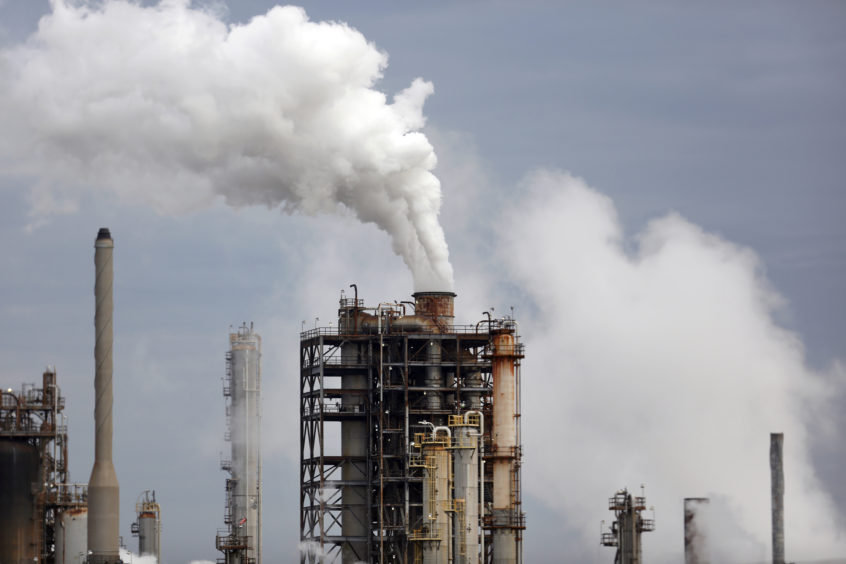
Oil rebounded from near the lowest level in five months after two tankers were damaged in a suspected attack in the Gulf of Oman.
Futures in New York rose as much as 3.9% after the U.S. Fifth Fleet said two tankers had been damaged. The tanker Kokuka Courageous sailing from Saudi Arabia to Singapore with a cargo of methanol “has been damaged as a result of the suspected attack,” the vessel manager said in a statement. Oil slumped 4% Wednesday after U.S. government data showed crude stockpiles expanded by 2.2 million barrels last week.
The incident in the Gulf of Oman follows attacks on oil tankers near the Persian Gulf last month and raises the possibility of a disruption of crude flows. That may give prices some reprieve after swelling American inventories and the rupture between the U.S. and China wiped out most of this year’s rally. WTI’s 14-day relative strength fell back into oversold territory Wednesday, a signal recent losses may have been overdone.
WTI futures for July delivery gained $1.28, or 2.5%, to $52.42 a barrel on the New York Mercantile Exchange as of 7:58 a.m. in London. The contract closed down $2.13 on Wednesday, the biggest drop since May 31.
Brent for August settlement added $1.68, or 2.8%, to $61.65 a barrel on London’s ICE Futures Europe Exchange after jumping as much as 4.5% earlier. It closed down 3.7% on Wednesday. The global benchmark crude traded at a premium of $9.02 to WTI for the same month.
U.S. crude stockpiles climbed to the highest level since July 2017 in the week through June 7, according to the Energy Information Administration. The EIA also said inventories at Cushing, the largest American storage hub, rose by 2.1 million barrels, the biggest increase since mid-February. Total U.S. oil inventories including the Strategic Petroleum Reserve have now risen in 10 of the last 12 weeks amid subdued demand for products.
Trade negotiations between Washington and Beijing broke down after the U.S. accused China’s leaders of reneging on provisions of a tentative agreement. Trump said Tuesday he won’t complete an agreement unless China returns to terms negotiated earlier in the year. A day earlier, he threatened to raise tariffs if President Xi Jinping doesn’t meet with him at the Group of 20 summit this month in Japan.
Other oil-market news:
Saudi Arabia, the world’s biggest oil exporter, seems willing for now to satisfy Chinese requests for extra crude as supplies are squeezed elsewhere.
Oil-industry insiders plowed almost $24 million into their own shares in the past six weeks, a clear signal they’re skeptical the bear market in energy stocks will last.
Crude futures for July delivery rose 0.4% to 424.8 yuan a barrel on the Shanghai International Energy Exchange.
Recommended for you
